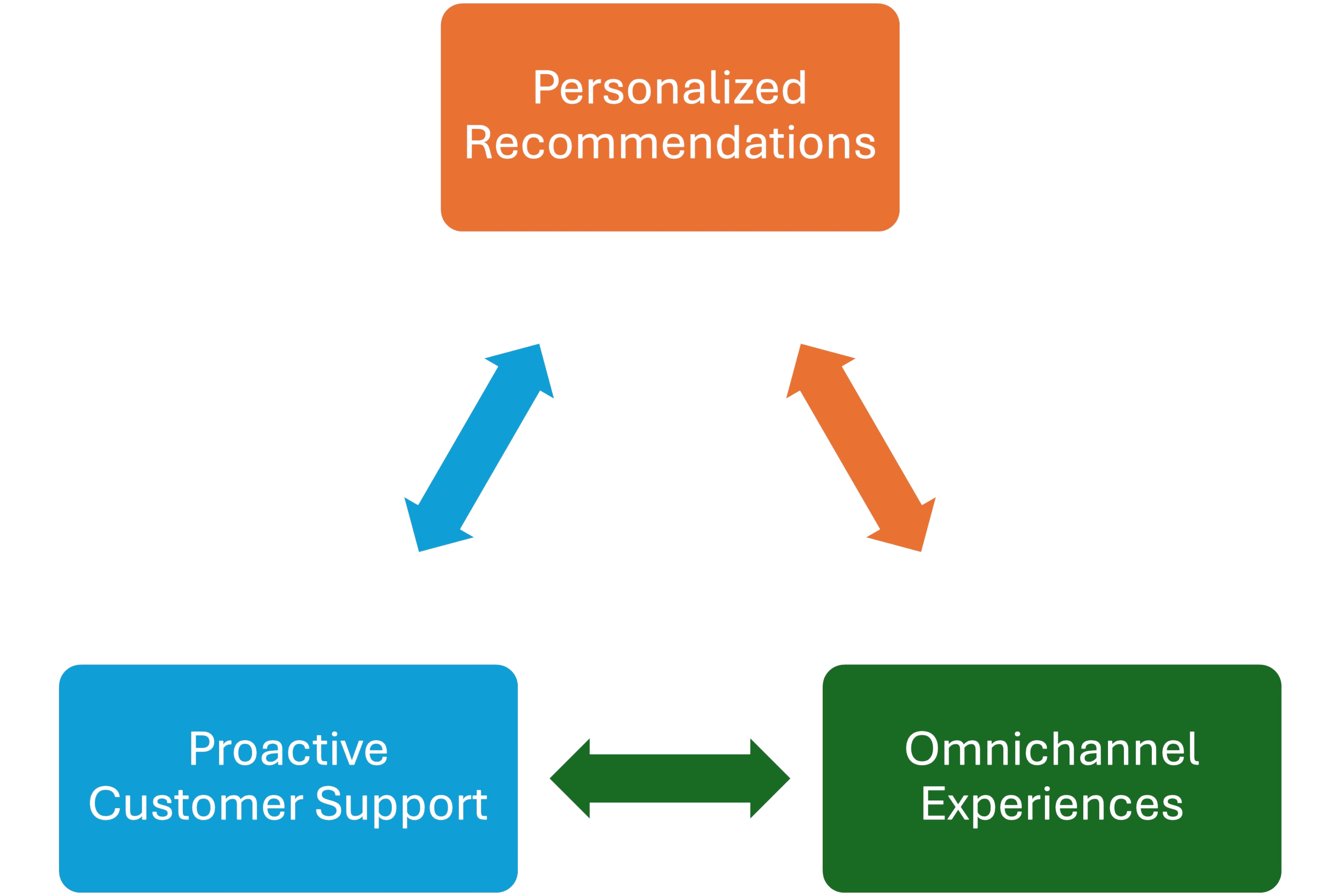AI Is the New CX Advantage: How Business Leaders Can Turn Data Into Delight
Artificial intelligence (AI) has quietly evolved from a behind-the-scenes tool into an indispensable competitive advantage for businesses aiming to revolutionize customer experience (CX). Today, the most forward-thinking business leaders harness AI not just for efficiency, but to turn raw data into delightful interactions that build lasting loyalty. As an AI adoption strategist, it’s clear: those who master these capabilities will own the future of CX.
From Data to Delight: How AI Transforms CX
The explosion of customer data has created new opportunities—but only for organizations ready to translate insights into meaningful action. AI-powered systems can instantly recognize individual preferences, anticipate needs, and create seamless service experiences that feel almost magical.
Personalized Recommendations: Retail giants like Sephora use AI-driven virtual assistants to analyze customer profiles and offer tailored product suggestions, both in-store and online. Sephora’s Virtual Artist, for example, lets customers virtually try on products while receiving data-driven recommendations, boosting engagement and sales.
Proactive Customer Support: Liberty London, a leading UK retailer, uses Zendesk’s AI platform to automatically classify and route customer inquiries based on intent and sentiment. This slashes resolution times and ensures every customer gets the right support at the right moment.
Omnichannel Experiences: Amazon’s Rufus, a generative AI shopping assistant, taps into vast review and product databases to deliver recommendations, answer research questions, and personalize every step of the buyer’s journey—raising satisfaction and conversions.
Real World Success Stories
Starbucks: Deep Brew Revolution
Starbucks launched Deep Brew, an AI-powered analytics platform, to optimize operations and personalize every interaction across more than 30,000 stores. Deep Brew blends customer data with predictive analytics and automation to recommend new drinks, manage inventory, and route staff where they’re needed most. The platform delivers dynamic app suggestions, loyalty optimization, and employee empowerment—freeing baristas to connect with customers.
Ulta Beauty: Automated Personalization
Ulta Beauty uses AI to make product suggestions based on browsing history and previous purchases. Shoppers see relevant products in their feeds, enjoy faster customer support through AI-enabled chatbots, and get seamless omnichannel experiences.
Liberty London: Faster Service & Premium Experience
By deploying Zendesk AI, Liberty London reduced ticket resolution time by 11%, sped up first replies by 73%, and improved customer satisfaction by 9%. AI’s ability to route complex queries to the right human agents ensures that personalized service remains at the heart of their brand.
Tangible Takeaways for CX Leaders
Integrate AI Across Channels: Ensure your data is connected across every touchpoint—website, app, in-store, and contact center.
Empower Your Team: Use AI to automate repetitive inquiries and free human staff to focus on high-value relationships.
Leverage Predictive Analytics: Adopt AI tools to forecast demand, spot trends, and personalize offers before customers even ask.
Put Privacy First: Balance intelligent data use with transparent privacy policies to foster trust and retention.
Start Small, Scale Fast: Begin with pilot projects—like chatbots or personalized messaging—and expand as you see measurable value.
Frequently Asked Questions
How does AI improve customer satisfaction?
AI predicts preferences, automates responses, and personalizes interactions, which leads to quicker, more relevant solutions and greater customer happiness.
Are AI-powered chatbots replacing human agents?
No. AI chatbots handle routine inquiries, freeing human experts to manage complex, relationship-driven support and provide empathy.
What's the first step to adopt AI in CX?
Begin by mapping your customers’ journeys and identifying bottlenecks where automation or analytics could add significant value.
Is AI expensive for small businesses?
Modern AI tools are increasingly accessible, offering cloud-based solutions that can scale to businesses of any size without large upfront investments.
How do I keep AI ethical and trustworthy?
You should develop clear, transparent data policies, conduct regular audits, and build privacy-by-design principles into your CX strategy to protect customers and foster trust.
